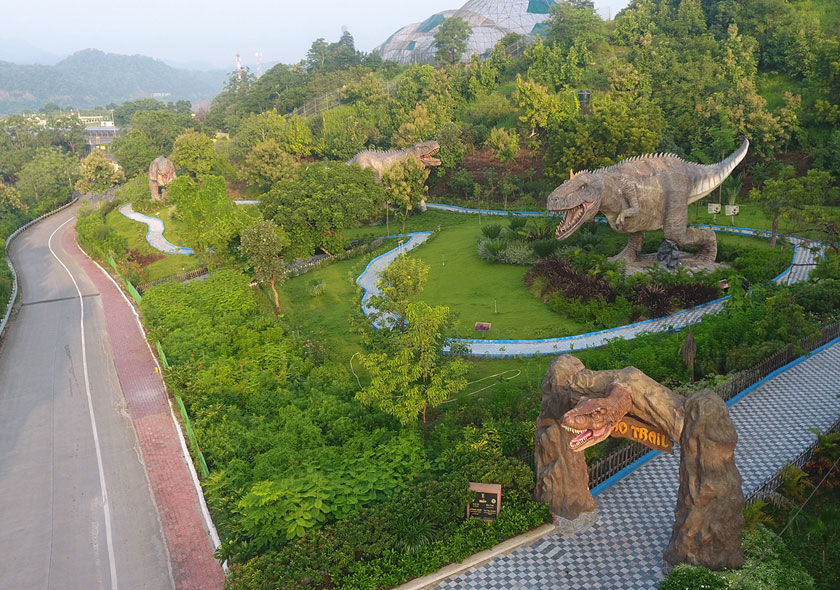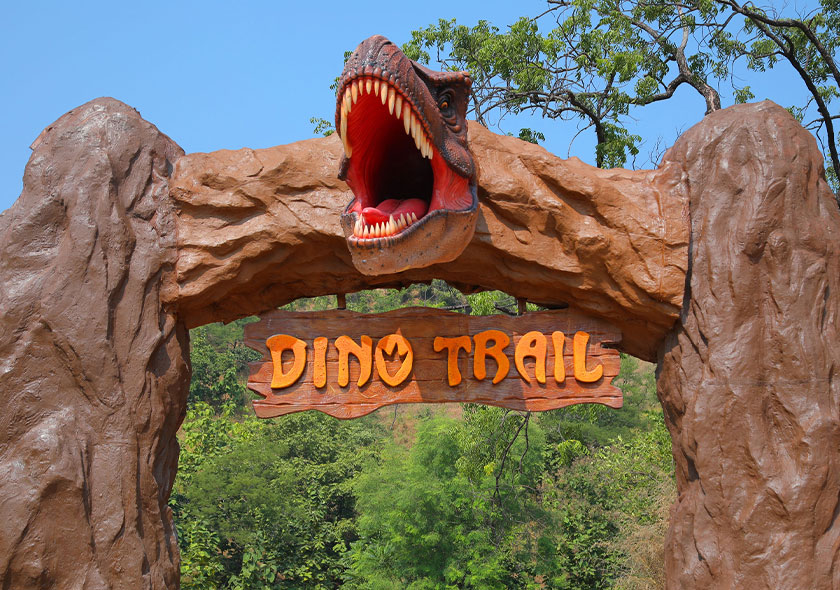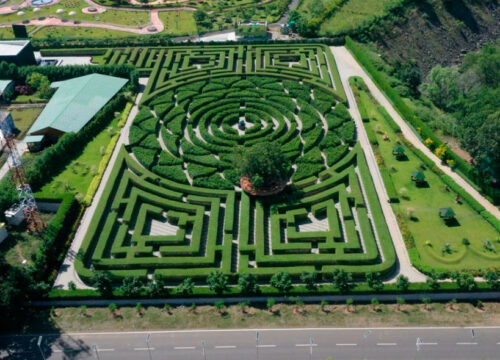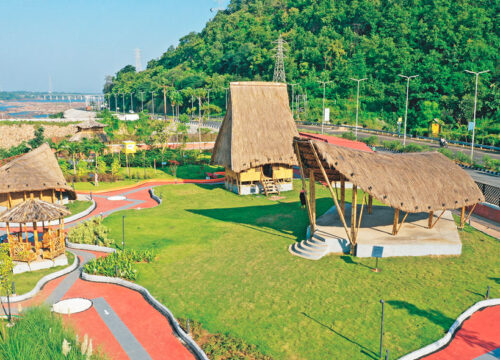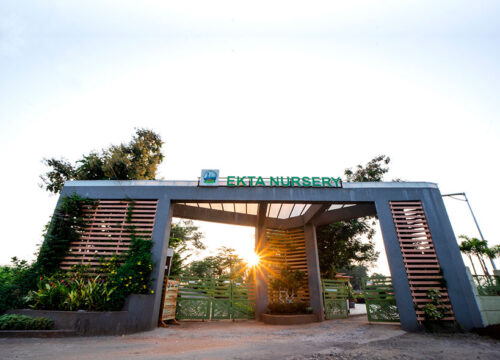Location
Statue of Unity, Gujarat 393155, India
Operational Hours
08:00Hrs to 18:00Hrs
Time Slot(s)
08:00 AM - 10:00 AM, 10:00 AM - 12:00 PM, 01:00 PM - 03:00 PM, 03:00 PM - 05:00 PM
Dino Trail
RAJASAURUS NARMADENSIS – THE DINOSAUR NATIVE TO NARMADA VALLEY
Recent excavations in the Narmada valley, have revealed that Rajasaurus Narmadensis, an endemic species of dinosaur, was existing in the Narmada valley during Cretaceous period [also known as the ‘K-period’]. The K-period spanned between Jurassic period (145 million years ago) and Paleogene Period (66 million years ago).
In the History – Rajasaurus Narmadensis is a species of carnivorous abelisaurid theropod dinosaur from the late Cretaceous of India. Not many of us are aware that India was once a home to a number of dinosaurs from the early Triassic to the late Cretaceous. Gujarat is one of the few states of India that contains a wealth of dinosaur fossilized remains. Rajasaurus is a genus of carnivorous abelisaurid theropod dinosaur from the Late Cretaceous of India, containing one species – Rajasaurus Narmadensis. The bones were excavated from the Lameta Formation (a sedimentary rock formation found in Madhya Pradesh, Gujarat, and Maharashtra, India) in the Gujarat state of Western India, probably inhabiting what is now the Narmada River Valley.
The generic name Rajasaurus derives from the Sanskrit rÄja, meaning ‘king, sovereign, chief, or best of its kind’ and Ancient Greek sauros, meaning ‘lizard’; and its specific name Narmadensis refers to the Narmada River in central India near where it was discovered.
Attractive Replication – A replica of the endemic dinosaur with the distinctive horn is created and exhibited for the visitors. The replica is about three times the estimated–original size; it measures 75 feet in length and 25 feet in height. This offers the visitors a glimpse into the evolution of the planet and mankind and is an attempt to create public awareness regarding the wealth of ancient flora and fauna of this area.
The positioning of the sculptures is in such a way that one can actually feel the presence of these extinct formidable beasts at this place. It gives you an experience of how life on Earth was like millions of years ago. A nature trail amidst the forests of Vindyachal takes you to the Rajasarus Narmadensis and a treasurable moment to relive the primeval era when these colossal beasts used to roam in the prehistoric woodlands of Narmada valley.
Rajasaurus has become a tourist attraction for the state of Gujarat. The continued popularity of dinosaurs as movie monsters has become striking because of films like Jurassic Park and in TV shows. It has therefore captivated attention among the crowd especially the younger generation. Growing charm of Dinosaur toys is another reason for its admiration.
Recent excavations in the Narmada valley, have revealed that Rajasaurus Narmadensis, an endemic species of dinosaur, was existing in the Narmada valley during Cretaceous period [also known as the ‘K-period’]. The K-period spanned between Jurassic period (145 million years ago) and Paleogene Period (66 million years ago).
In the History – Rajasaurus Narmadensis is a species of carnivorous abelisaurid theropod dinosaur from the late Cretaceous of India. Not many of us are aware that India was once a home to a number of dinosaurs from the early Triassic to the late Cretaceous. Gujarat is one of the few states of India that contains a wealth of dinosaur fossilized remains. Rajasaurus is a genus of carnivorous abelisaurid theropod dinosaur from the Late Cretaceous of India, containing one species – Rajasaurus Narmadensis. The bones were excavated from the Lameta Formation (a sedimentary rock formation found in Madhya Pradesh, Gujarat, and Maharashtra, India) in the Gujarat state of Western India, probably inhabiting what is now the Narmada River Valley.
The generic name Rajasaurus derives from the Sanskrit rÄja, meaning ‘king, sovereign, chief, or best of its kind’ and Ancient Greek sauros, meaning ‘lizard’; and its specific name Narmadensis refers to the Narmada River in central India near where it was discovered.
Attractive Replication – A replica of the endemic dinosaur with the distinctive horn is created and exhibited for the visitors. The replica is about three times the estimated–original size; it measures 75 feet in length and 25 feet in height. This offers the visitors a glimpse into the evolution of the planet and mankind and is an attempt to create public awareness regarding the wealth of ancient flora and fauna of this area.
The positioning of the sculptures is in such a way that one can actually feel the presence of these extinct formidable beasts at this place. It gives you an experience of how life on Earth was like millions of years ago. A nature trail amidst the forests of Vindyachal takes you to the Rajasarus Narmadensis and a treasurable moment to relive the primeval era when these colossal beasts used to roam in the prehistoric woodlands of Narmada valley.
Rajasaurus has become a tourist attraction for the state of Gujarat. The continued popularity of dinosaurs as movie monsters has become striking because of films like Jurassic Park and in TV shows. It has therefore captivated attention among the crowd especially the younger generation. Growing charm of Dinosaur toys is another reason for its admiration.

